By Patricia Leslie
Sophie Masson AM is an award-winning author. War & Resistance is her latest historical novel for young adults, preceded most recently by Black Wings (the Greystanes Press 2018) and Jack of Spades( (Eagle Books 2017) which was shortlisted for the 2018 Davitt Awards.
Sophie has published over 60 books. In between wordsmithing and publishing, she has been involved in organisations such as the Australian Society of Authors and the New England Writers Centre. So much so that she was recently awarded an AM in the Order of Australia for service to literature.
Congrats, Sophie! That’s quite an achievement and you’re also the #HNSA2019 Conference Patron as well!
Thank you so much for this interview when you must be incredibly busy.
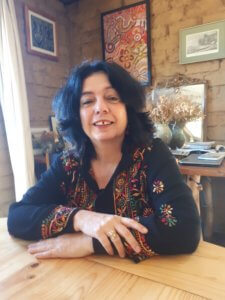
Having read War and Resistance, I can see how the theme of this year’s conference connects with your writing. As Sasha and Dieter learn and grow within the wider world of wartime, I also recognise a similarity with contemporary political propaganda, manipulation of the press, and the struggle to find the truth.
Is this a deliberate, if secondary, theme in your writing, and what does History Repeats mean to you as an historical fiction writer?
Yes, it is a deliberate theme. In both War and Resistance and its earlier companion novel, 1914, which is set around the generation of Sasha’s father Louis Jullian, I explored the ways in which propaganda can not only lead to war, but also how it tries to obscure the truth of what is happening, during wartime itself. Another name for propaganda of course could be ‘fake news’—which isn’t exactly a new phenomenon, despite our contemporary focus on it. And it’s not just been perpetrated by governments either—then as now, malignant groups and individuals can wield it as a weapon designed to inflame tensions and stoke fears.
What History Repeats means to me as a historical fiction writer is that in the past we find a mirror of the present. It is never an exact reflection; like a fairground mirror it can seem distorted or emphasise one thing over the other. And it reflects back and back as well as forward. History Repeats means you find the same core themes of the human story repeated over and over through the centuries and around the globe; each time in a different dress, so that people living at the time may think their experiences are unique in the history of the world. History Repeats isn’t just about dark or dangerous times though, like the periods I wrote about in War and Resistance and 1914 and Black Wings (which is set in the turmoil of the French Revolution); it is also about the more cheerful and beautiful aspects of humanity and the more peaceful periods of discovery and creativity. History Repeats is certainly not just a negative thing about bad things happening over and over—it can also mean family continuity, enduring love, constant learning, creative thriving and community warmth.
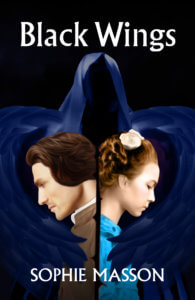
You write in the Young Adult and Children categories, yet I found quite a bit to learn about family life in War and Resistance through the relationships between the children and their mothers. Do you find that weaving in this level of observation and understanding has drawn a response, or following, from older readers?
Yes, I think it has. Writing for young readers doesn’t mean ignoring the experiences of adults; children are generally part of families and their world isn’t just one of people their age. The books focus on young people as the main characters, but it’s a full world I want to depict. So I always weave in observations of relationships, both good and bad, and how they affect the young main characters. I think adult readers do respond to that, and I think children do too, in a different way, of course.
Of course I also write for adults occasionally, as with Black Wings—and in that book, which starts when the main characters are teenagers, I bring my observations of young people’s lives and behaviour into an adult world.
I’m always interested in how other authors go about their work. Would you mind sharing your writing schedule with us? Did it take you long to develop your routine or did you jump right in with a set schedule?
I write around five days a week, not necessarily or usually Monday-Friday, but days that suit the other things I have to do, and I don’t write more than three days in a row, as I have found that’s about the limit before I need a break. I usually start around 8.30 or 9.00, after a short half hour walk up the road which helps to focus my thoughts, and then I write till around 5.30 or 6, with a break for lunch. I never write at night as I know from experience that it doesn’t work for me—instead I relax, have dinner, watch a TV series or movie, and read before bed.
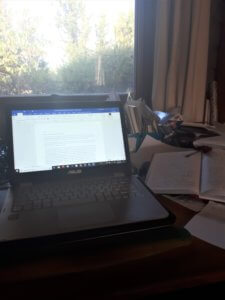
I am a very concentrated, focussed writer and don’t get distracted easily (I learned to do that as a child, as I grew up in a big noisy family and if you didn’t learn to block yourself off from distractions, then you never did anything you wanted to do, like read for ages or write!) I usually write a chapter or two a day, and each writing morning I reread what I wrote the day before and edit it where necessary—so that by the time I’ve finished, I’ve got a pretty tight, clean first draft. I then reread and revise the whole thing before sending it to my editor.
I didn’t have a set schedule from the start, it was just the way I fell naturally into. It suits me and also worked well with family life when our kids were growing up. I was never fixated on a schedule but worked around things—I have to say that I am very fortunate to have a partner who has always been supportive of my writing and who did as much childcare and household stuff as me. In fact, in terms of housework, he has always done much more than me 😊 My desk is in the living room, not in a separate room; I have never had an issue with writing in the midst of life going on around me—that childhood experience stood me in good stead!
These days of course now our kids have grown up, I have the great luxury of lots more time to concentrate not just on my writing but also the other things I do in the literary world, such as serving on industry organisations and even starting a small press!
Do you have any special rituals that help ease you into the writing process or unlock your creativity?
No, apart from my morning walk; but though I always find the writing flows quicker at the start if I have the walk, if some reason I can’t go on it (eg rain), I can still get on with my writing day. And I can write anywhere if I have to, I don’t need a set environment, though of course I usually write at home.
With over 60 books on your back catalogue, do you have any trouble finding new ideas or does your experience as an author and working within the literary industry only fuel your creativity?
The latter—I have never had any problem with finding new ideas, the issue is more that I will never live long enough to follow up all my ideas! My creativity is fuelled by constant practice, by immersion in the world of books, but also of course by life itself.
I can’t wait to hear you and Kelly Gardiner talking about versatility and how you manage to write across genre and age-groups. Without giving away your secrets completely, how has the range of writing styles helped to keep your writing fresh and so wonderfully entertaining?
Although I am very focussed, I also have a low boredom threshold, frankly😊—to write the same type of thing over and over or always to stay within the same genre or age group would be unbearably tedious for someone of my temperament. I love to read different types of books; so why would I want to restrict myself as a writer? I’m very curious and I love exploring and discovering new things, so for me versatility is the only way to go. And it’s been something that’s really worked for me, because it means I’ve been able to be flexible and adaptable and maintain a long and very satisfying career.
War and Resistance by Sophie Masson
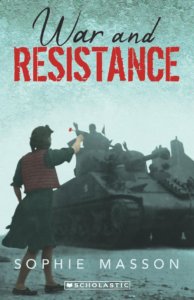
In 1939, 12-year-old Sasha, inspired by the words of her father, the celebrated journalist Louis Jullian, feels she must find a way to stand up to Nazi terror, in the shadow of a world at war.
Hitler’s blitzkrieg results in the surrender of France and Sasha and her family flee Paris–learning first-hand the brutality of war–and how acts of resistance, no matter how small, can make a difference.
In their occupied country, fraternising with the enemy is frowned on, but necessary. It only gets more complicated when she meets Dieter, a member of the Hitler Youth and the son of her father’s best friend. How can Sasha know who to trust when the enemy becomes a friend.
At HNSA 2019, Sophie Masson will discuss The Versatile Writer in conversation with Kelly Gardiner in the panel and chair a panel on Feminine Mystique: writing strong female protagonists

Patricia Leslie is a member of the Social Media Team for HNS Australasia. Her novels mix known and hidden history with magic and myth. Her 2018 release, Keeper of the Way, mixes it up in Sydney 1882 exploring social history, magical traditions brought to the Colony from Scotland and Ireland, and the destruction of the Garden Palace. Learn more at www.patricialeslie.net
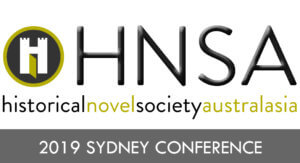
Once again, historical fiction writers and readers can gather for a three stream program on the weekend of 26-27 October including our extended Academic stream on Sunday 27 October. This time there’s also a Craft & Publishing program on Friday 25 October with craft workshops, masterclasses and manuscript assessments with top class tutors. Our Guest of Honour is Jackie French. Keynote speaker Paula Morris will address our theme: History Repeats.
Among the 60 acclaimed speakers are patrons Kate Forsyth and Sophie Masson, Catherine Jinks, Ali Alizadeh, Lucy Treloar, Pamela Hart, Nicole Alexander, Jane Caro, Alison Goodman, Kelly Gardiner, Michelle Aung Thin, Meg Keneally, Majella Cullinane and so many more.
Enjoy a delicious meal at our conference dinner on Saturday 26 October where Anna Campbell will entertain us. You’ll also hear who’s won this year’s ARA HNSA Short Story Contest with a $500 prize, and the HNSA Colleen McCullough Residency.
Visit our website to purchase your early bird tickets now!
Subscribe to our newsletter for interviews, podcasts and conference news.
Read our features on News & Interviews.
Learn about our sponsorship opportunities.
Let’s make a noise about historical fiction!




